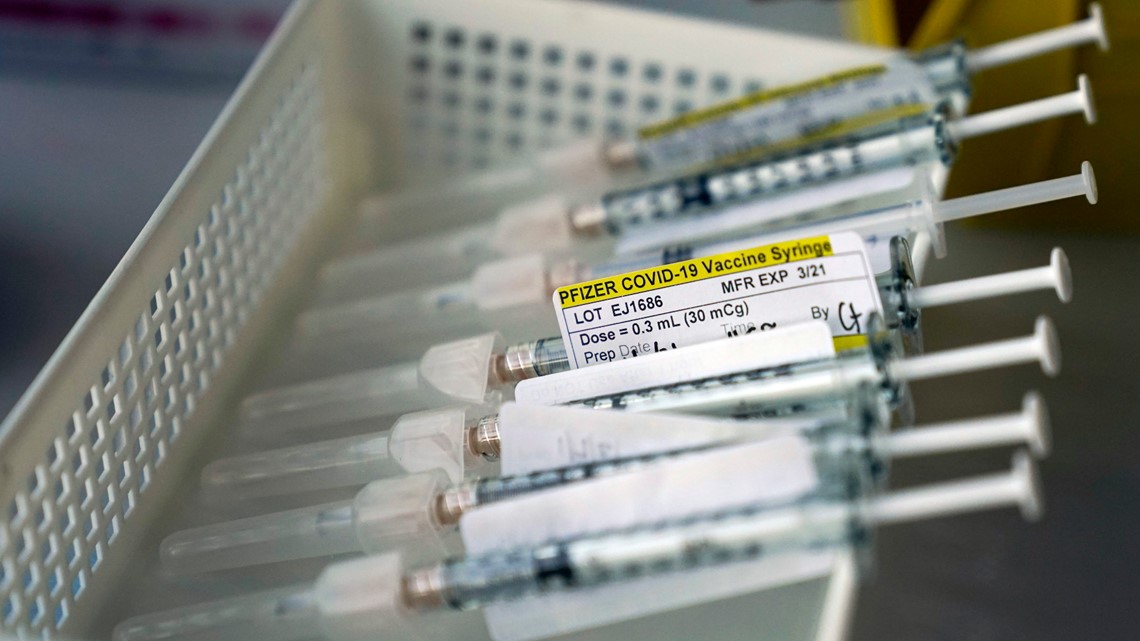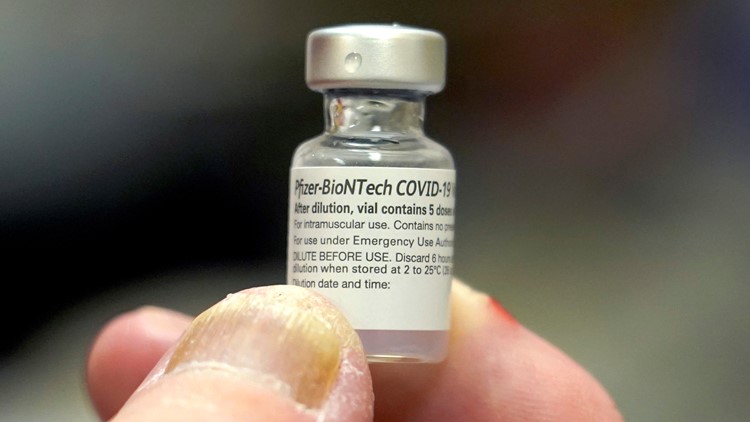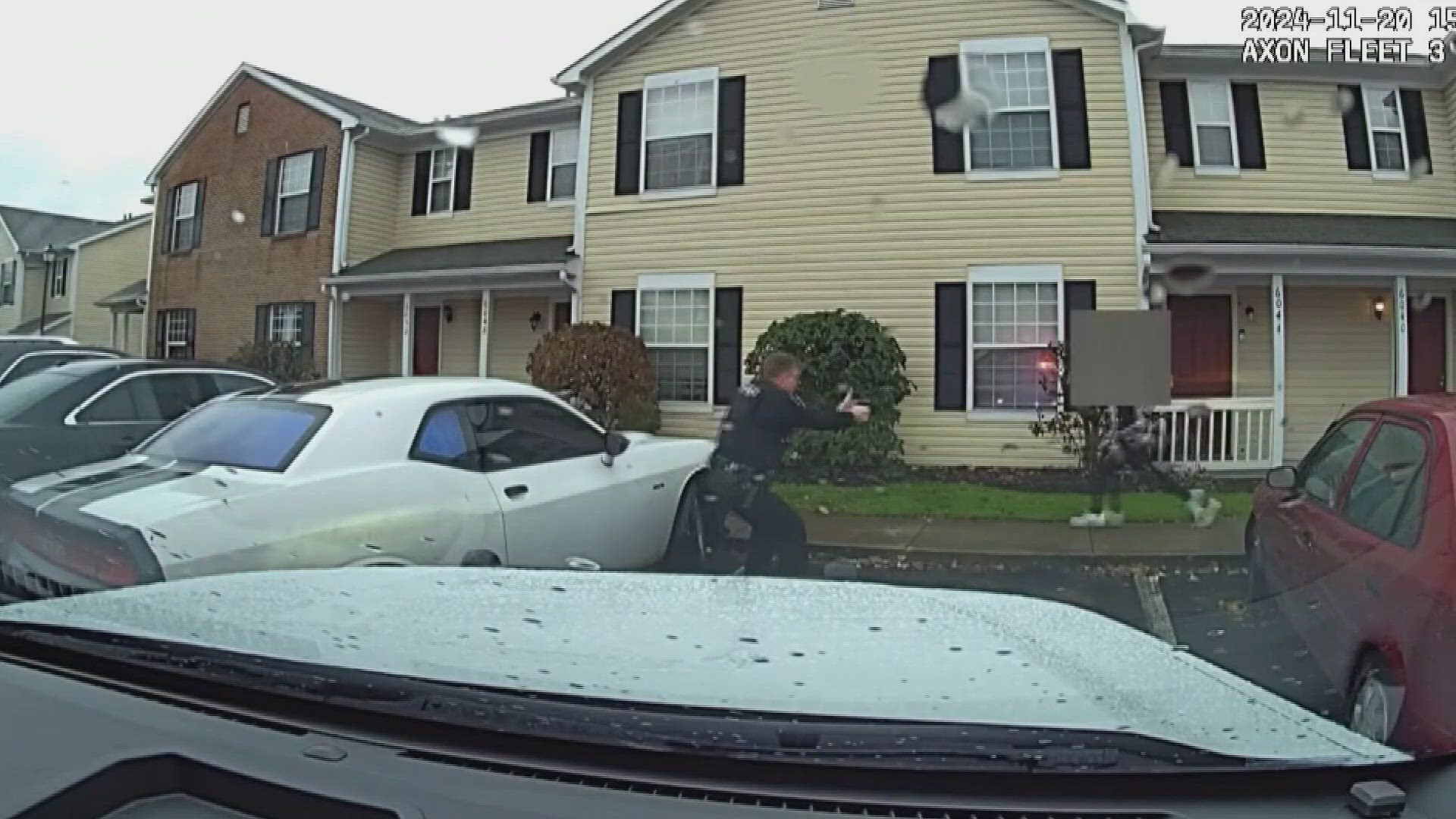WASHINGTON — Pfizer announced Thursday that it has begun studying a third dose of its COVID-19 vaccine, part of a strategy to guard against mutated versions of the coronavirus.
Health authorities say first-generation COVID-19 vaccines still protect against variants that are emerging in different parts of the world. But manufacturers are starting to prepare now in case a more vaccine-resistant mutation comes along.
Pfizer said it will offer a third dose to 144 volunteers, drawing from people who participated in the vaccine’s early-stage U.S. testing last year. It wants to determine if an additional booster shot given six to 12 months after the first two doses would rev up the immune system enough to ward off a mutated virus.
RELATED: Pfizer vaccine 62% effective after 1st shot in preventing severe COVID in 'real world' test
Pfizer and its German partner, BioNTech, also are tweaking their vaccine recipe. The companies are in discussions with U.S. and European regulators about a study to evaluate doses updated to better match variants such as the one first discovered in South Africa.


For most people, the new coronavirus causes mild or moderate symptoms. For some, especially older adults and people with existing health problems, it can cause more severe illness, including pneumonia and death.
The United States has more than 28 million confirmed cases of COVID-19, according to data from Johns Hopkins University.
As of Thursday, the U.S. had more than 505,000 deaths from the virus. Worldwide, there are more than 112 million confirmed cases with nearly 2.5 million deaths.



